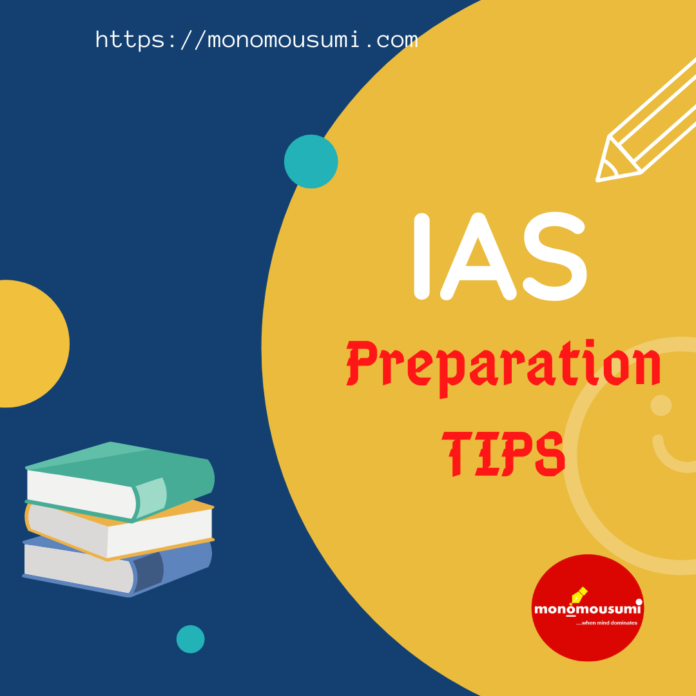The IAS test (authoritatively known as the Civil Services Examination) is directed by the Union Public Service Commission (UPSC) every year.
The individuals who clear all the three phases of the IAS test go into the lofty common administrations of the nation, and become officials in the Indian Administrative Service (IAS), Indian Police Service (IPS), Indian Foreign Service (IFS) and other different administrations. In spite of the fact that viewed as perhaps the hardest test in the nation, with the correct methodology and system, a competitor can break the IAS assessment in the absolute first endeavor. It is fundamental for hopefuls to know and comprehend the necessities of the IAS test 2020, for example, the UPSC prospectus for IAS Exam (Prelims and Mains), design, qualification standards, application methodology and other such critical subtleties before launching the arrangements.
The IAS Exam pattern is:
- Stage I: Preliminary Examination (IAS Prelims)
- Stage II: Mains Examination (IAS Mains)
- Stage III: UPSC Personality Test (IAS Interview)
IAS Eligibility Criteria:
(i) Age limits: 21-30 years as on 1.7.2012
(ii) Educational Qualifications: Bachelor’s degree from a recognized university
(iii) No. of permissible attempts: Four for General category, Seven attempts of OBCs and no limit for SCs/STs.
(iv) Fee:
Rs. 100/- (Rupees one hundred only)
(No fee for SCs/STs/Physically disabled only)
(v) Nationality: Indian Citizen.
(vi) Sexual orientation: – Both Male and Female are qualified.
This exam has three stages:
- Preliminary Exam
- Main Exam
- Interview
IAS Syllabus 2020
Fundamental Round
Paper 1 – General Awareness
This paper will test the applicants’ information and enthusiasm for the nation. The inquiries will be from different angles like history, geology, economy, and so on relating to the nation. A portion of the significant themes include:
- Occasions and Happening of National Importance
- Effect of Geography in the nation
- Administration and Constitutional Structure
- Current Issues looked by the nation
- Financial and Social Development
- Innovative work
- Logical Developments
Paper 2 – English and General Aptitude
The order of English is required in the field of Public Service and competitors need to score at least 33 % to fit the bill for the test. The inclination of an individual decides his capacity to tackle complex issues, time the executives, and readiness. The significant territories to rehearse for IAS Exam incorporate
- Legitimate Reasoning
- Critical thinking Capacity
- Relational Skills
- Numerical Ability
- Expository Skills
- Perception
- Antonyms/Synonyms
Mains Round
Paper 3 – Essay Writing
Up-and-comers can compose their preferred exposition on the subject
Paper 4 – General Studies I
This paper will contain questions identifying with old India relating to History, Geography, Heritage, Culture, and so on. A portion of the themes incorporate
- History of India – Ancient and Modern
- Critical changes in Architecture, Literature, and so on.
- Geological Significance
- Striking occasions in World History
- Decent variety
- Globalization
Paper 5 – General Studies II
This paper will contain inquiries regarding the changes in Indian Governance post-Independence. The subjects incorporate
- Constitution of India
- Sacred Analysis of the world
- Parliament and Legislatures
- Key issues looked by the country and arrangements
- Government assistance Schemes by the Government
- Division and Structures in Government
Paper 6 – General Studies III
This paper will contain inquiries regarding Modern India and late Key turns of events. The subjects incorporate
- Indian Economy
- Cultivating
- Science
- Innovative work
- Data Technology
- Ecological Studies
- Accomplishments in different fields
- Security Challenges
- Modern Growth
- Infrastructural improvements
Paper 7 – General Studies IV
This paper will contain inquiries regarding Ethics, Integrity, and Aptitude. The points incorporate
- Morals in Public Administration
- Enthusiastic Intelligence
- Conduct Analysis
- Utilitarian Values
Paper 8 and 9 – Candidates can choose their ideal subject from the rundown of subjects given beneath:
- Farming
- Creature Husbandry and Veterinary Science
- Human sciences
- Organic science
- Science
- Structural Engineering
- Business and Accountancy
- Financial aspects
- Electrical Engineering
- Geology
- Geography
- Indian History
- Law
- The executives
- Science
- Mechanical Engineering
- Clinical Science
- Reasoning
- Material science
- Political Theory and International Relations
- Brain science
- Policy management
- Human science
- Insights
- Zoology
IAS Marking Scheme for Prelims
- Each question in the General Studies paper conveys 2 imprints.
- Each question in the Civil Service Aptitude Test paper conveys 2.5 imprints.
- For each question for which an off-base answer has been given by the applicant, 33% (0.33) of the imprints out to that question will be deducted as punishment.
- In the event that a competitor offers more than one response, it will be treated as an off-base answer regardless of whether one of the offered responses happens to be right and the punishment will be equivalent to reference above for that question.
- In the event that an inquiry is left clear, for example no answer is given by the candidate; there will be no punishment for that question.
- Paper-II (CSAT) in the IAS test is of qualifying nature and applicants should score at least 33 percent in this paper to fit the bill for the following phase of the IAS test i.e., Mains.
Recommended books:
| Subject | UPSC Books |
| History | India’s Struggle for Independence – Bipan Chandra Facets of Indian Culture – Spectrum NCERT XI (Ancient & Medieval) NCERT XII (Modern Indian History) |
| Geography |
Certificate Physical Geography – G C Leong
NCERT VI – X (Old Syllabus)
NCERT XI, XII (New Syllabus)
World Atlas
|
| Indian polity |
Indian Polity – M Laxmikanth
NCERT IX-XII
|
| Economics |
Indian Economy by Ramesh Singh
Economic Development & Policies in India – Jain & Ohri
NCERT XI
|
| International Relations |
NCERT XII (Contemporary World Politics)
Current Affairs
|
By Khyati Verdhan, Patna, Bihar, India
















